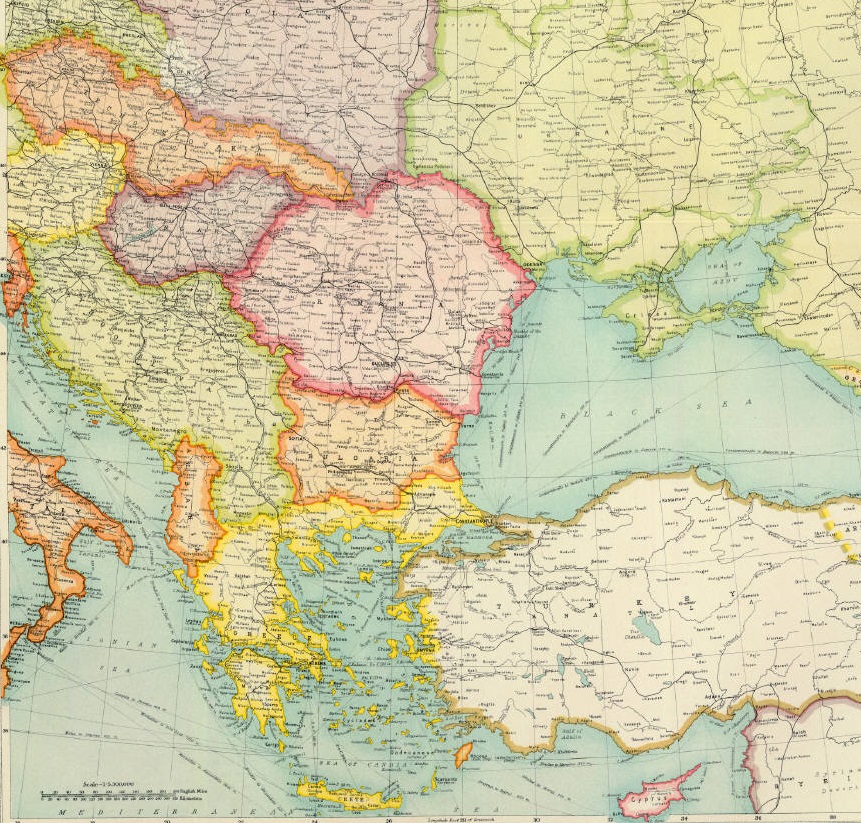A New World after the Great War? Romania and South-Eastern Europe between Modernization, Nationalism and Violence

Event: International Workshop
Location: Zoom
21 October 2021, 10.00 – 18.30 (Bucharest time)
Conveners: Alberto BASCIANI and Cristina BRĂGEA
Participants: Florin ANGHEL, Constantin ARDELEANU, Alberto BASCIANI, Cristina BRĂGEA, Paul BRUSANOWSKI, Antonela CAPELLE-POGĂCEAN, Roland CLARK, Francesco GUIDA, Lucian LEUȘTEAN, Francesco MAGNO, Hans-Christian MANER, Vojislav PAVLOVIĆ, Svetlana SUVEICĂ
Join Zoom Meeting
https://us02web.zoom.us/j/85616658858?pwd=YTZPeVlTZXZUUlNNbFV5MEtwc2tUZz09
Meeting ID: 856 1665 8858
Passcode: 528241
The aim of this workshop is to examine the elements that structure the modernization processes undergone, during the first decade of the interwar period, by the countries of South-Eastern Europe in general, and Romania in particular. A first axis of analysis examines the internal transformations of Romania and other states, the objectives and challenges of their modernization processes. Particular focus is paid to the strategic architecture that political authorities use to reconcile the desire for state unification with the compromises needed for such a project, which envisaged the harmonization of territories that were diverse in terms of ethnic, religious, cultural and political-administrative composition. A second axis aims to identify the typology of actors involved in processes of state centralization, their specific objectives and the instruments used to achieve them. The third axis explores the way in which internal harmonization and state centralization processes led to new directions of the foreign relations of states in South-Eastern Europe.
Program:
10.00-10.15 Opening remarks
10.15-12.15 Panel 1
Chair: Constantin ARDELEANU (Galați/Bucharest)
Alberto BASCIANI (Rome)
The end of the Great War. Romania, South-Eastern Europe and the Challenges of Modernity
Francesco GUIDA (Rome)
Could the ‘revolutionary upsurge’ have been successful in the Early Post-War Period?
Vojislav PAVLOVIĆ (Belgrade)
The Impossible Unification. The Kingdom of Serbs Croats and Slovenes
Paul BRUSANOWSKI (Sibiu)
Brief Coverage of the Events in the Autumn of 1918 and the Spring of 1919 in the German-Language ‘Pester Lloyd’ Newspaper (Budapest)
12.15-14.00 Lunch break
14.00-16.00 Panel 2
Chair: Cristina BRĂGEA (Bucharest/Paris)
Lucian LEUȘTEAN (Iași)
Romania and the League of Nations System for the Protection of Minorities of ‘Race, Language and Religion’ during the First Interwar Decade
Svetlana SUVEICĂ (Regensburg)
Nationalising the Bessarabian Railways: “The Anglo-Bessarabian Commercial Syndicate” confronting the Romanian State
Florin ANGHEL (Constanța)
Ţara de la frontieră: Dobrogea de Sud. Nostalgii imperiale la marginile idealului naţional
Antonela CAPELLE-POGĂCEAN (Paris)
Entangled Citizenship on a Hungarian-Romanian Contested Border City: Nagyvárad/Oradea, 1918-1921
16.00-16.15 Coffee Break
16.15-18.15 Panel 3
Chair: Alberto BASCIANI (Rome)
Roland CLARK (Liverpool)
Creating a Romanian Patriarchate: New Approaches to Romanian Orthodoxy
Francesco MAGNO (Trento)
A New Juridical System for a New Romania. The Schina Case (1918–1920)
Cristina BRĂGEA (Bucharest/Paris)
Confessional Identities and Nationalism in Romania–Vatican Diplomatic Relations (1920–1927). An Analysis of Documents from the Vatican Apostolic Archive
Hans-Christian MANER (Mainz)
Kulturkampf în România? Some Debates on the Concordat
18.15-18.30 Concluding remarks
This event is organized in connection with the Lapedatu Fellowship program at NEC, supported by the Lapedatu Foundation.